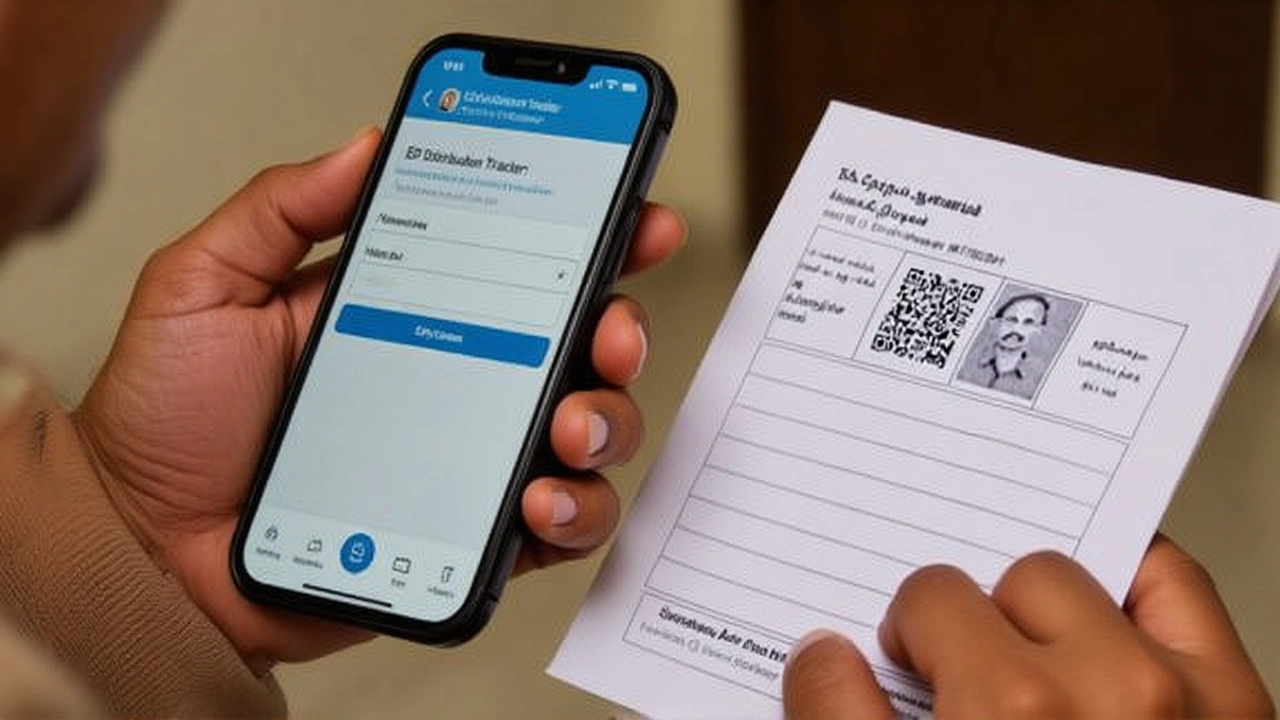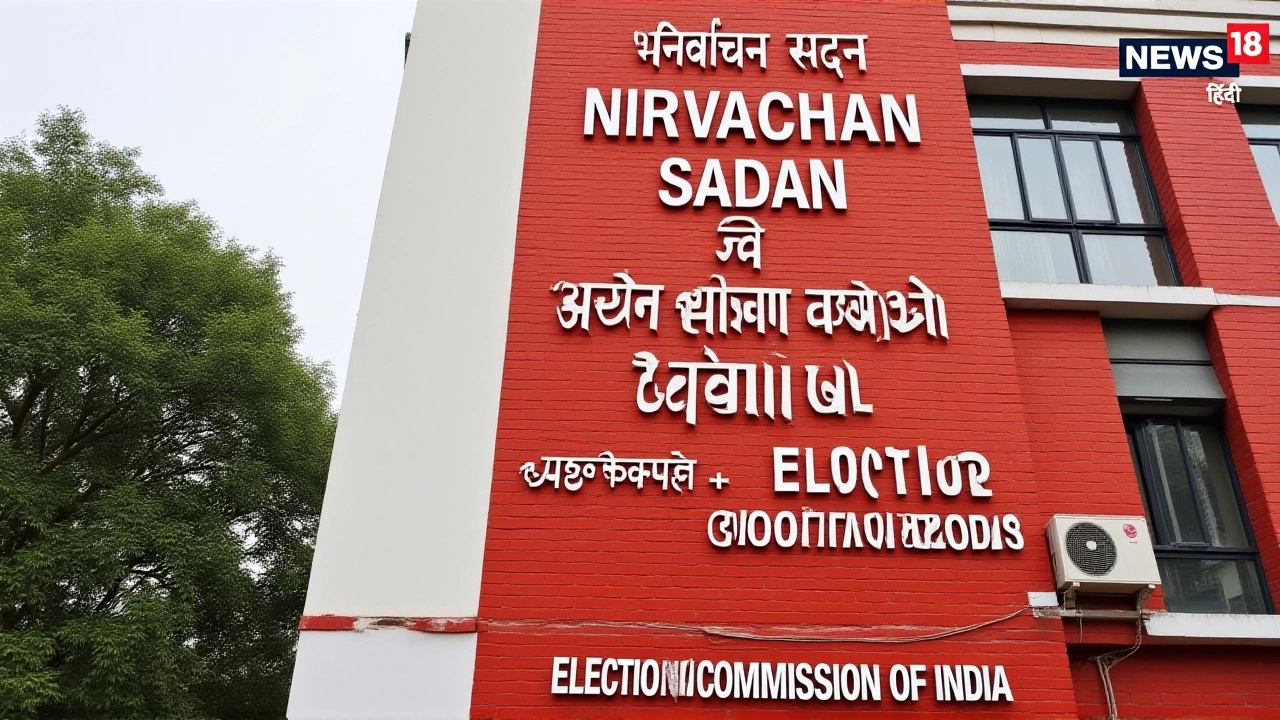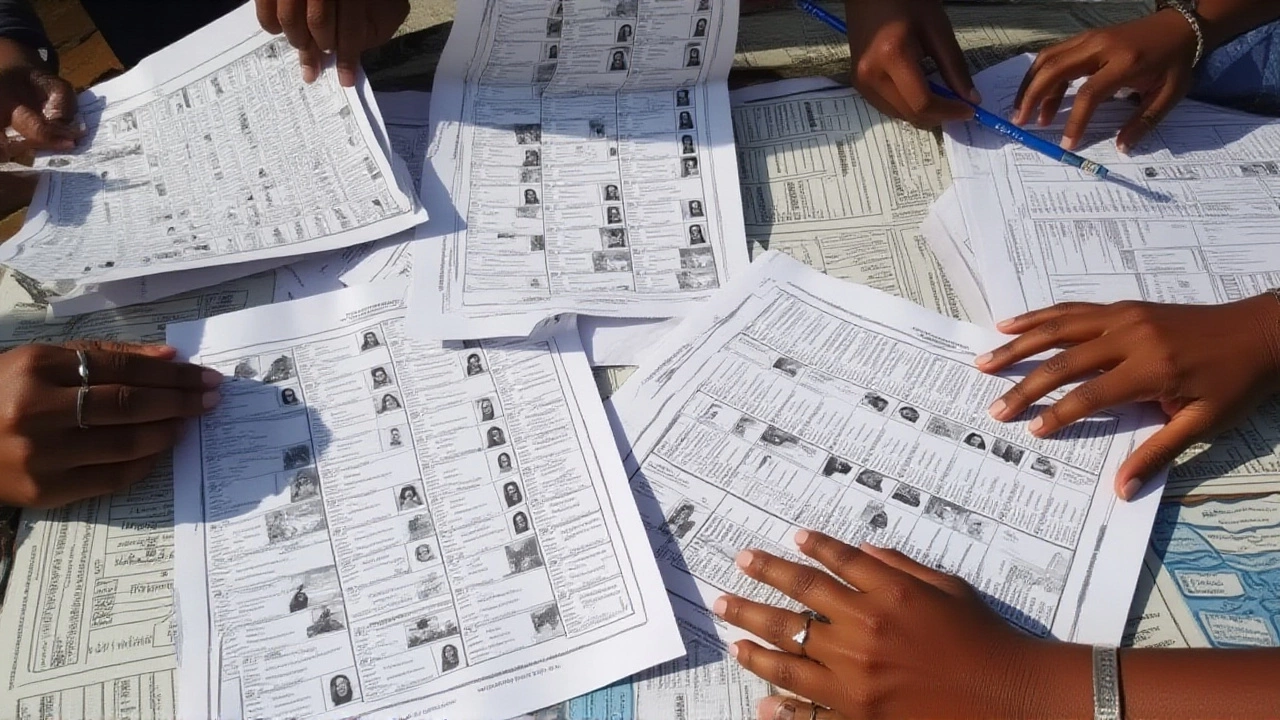
The Election Commission of India has launched its first-ever fully digital Special Intensive Revision (SIR) of electoral rolls, requiring every voter to link their 10-digit Electors Photo Identity Card (EPIC) number to a registered mobile phone before submitting forms online — a move that could disenfranchise millions if ignored. As of November 4, 2025, Tamil Nadu became the first state to begin the process, with Uttar Pradesh, Kerala, and all 28 states and 8 union territories following in waves through early 2026. The deadline for finalizing voter lists is February 7, 2026, just months before state elections begin. EPIC-mobile linking isn’t optional. It’s the only gateway to participation. If your phone number isn’t tied to your voter ID, you can’t even open the form.
How the Digital SIR Process Works — Step by Step
Visitors to voters.eci.gov.in are met with a simple but unforgiving requirement: log in with a mobile number already linked to your EPIC. No link? No access. The portal won’t let you proceed. Those who see the message “The mobile number is not linked with the EPIC number *********. Linked Mobile Number is: XXXXXXXXXX” must first update their details using Form-8 — and that’s where things get tricky.
The system demands Aadhaar-based e-sign verification, but only if the name on your Aadhaar card exactly matches the name on your EPIC. No nicknames. No middle name variations. No typos. Jagran Josh confirmed this is non-negotiable — if the names don’t align, the e-sign fails, and you’re stuck. For those without Aadhaar or with mismatched names, the ECI says to visit a local Booth Level Officer (BLO), but many voters report long waits and inconsistent guidance.
Here’s the workflow: visit the portal → select “Fill Enumeration Form” → enter your EPIC and state → auto-populated details appear → verify mobile via OTP → submit. Sounds simple. Until you realize your mobile number was never registered, or your EPIC was issued under a different spelling, or your BLO hasn’t updated records since 2019. And there’s no helpline for most states — except for NRIs.
NRIs Have a Different Path — But Still Face Hurdles
Non-resident Indians (NRIs) aren’t left out, but they’re on a separate track. They can log in using their email instead of a mobile number. But their support system is thin: a single helpline in Kerala — 0471-2551965 — open only 10 hours a day, IST. Email support at [email protected] is the only alternative. No chatbots. No live agents. No toll-free number. And the ECI hasn’t expanded this service to other states, leaving millions of overseas voters in limbo.
Even then, NRIs must still ensure their EPIC and Aadhaar names match — a challenge for those who changed names after emigrating or never updated documents abroad. One NRI in Toronto told Onmanorama: “I’ve had the same voter ID since 2005. My Aadhaar is under my married name. I can’t e-sign. No one tells me what to do next.”

Why the 2002 Voter List Still Matters
Here’s the twist: your eligibility isn’t just based on current data. The system compares your status against the 2002 electoral roll — a 23-year-old database. If you were on the 2002 list, or have a blood relative (parent, grandparent) listed then, you follow one path. If you weren’t, you’re asked to provide a blood relative’s name to prove lineage — a requirement that’s confusing, even for long-time residents.
Onmanorama’s November 16, 2025 report showed voters in Kerala and Tamil Nadu being asked to name their grandmother’s maiden name — a detail many don’t know. “I was born in 1998,” said a 27-year-old student in Coimbatore. “My dad’s name is on the 2002 list, but I don’t know my grandma’s name. What do I do?” The portal doesn’t say.
Who’s at Risk — And Why This Matters
Approximately 900 million voters are affected. The ECI estimates 15-20% — roughly 135 million people — may not have their EPIC linked to a mobile number. Many are elderly, rural, or low-income citizens who never registered phones, or whose numbers changed after migration. Others are women who use their husband’s number, or students who moved cities and never updated records.
“This isn’t just about technology,” said Dr. Anjali Mehta, a political scientist at Jawaharlal Nehru University. “It’s about exclusion disguised as efficiency. We’ve moved from paper forms delivered by BLOs — flawed, yes, but accessible — to a system that assumes everyone has a smartphone, Aadhaar, and digital literacy. That’s not India.”
And the stakes are high. Failure to submit by state deadlines means your name drops from the roll. No appeal. No grace period. The draft list publishes December 9, 2025 — and objections must be filed online. But if you’re not on the list, you can’t even file one.

What Comes Next — And Who’s Responsible
The ECI’s IT division, led by Director General (Systems) Umesh Sinha, built the portal. Chief Election Commissioner Rajiv Kumar and his colleagues Anup Chandra Pandey and Arun Goel approved the rollout. But the implementation? That’s left to state Chief Electoral Officers — and their capacity varies wildly.
Uttar Pradesh’s CEO website offers step-by-step guides. Kerala’s portal links to a 40-page PDF. Bihar’s website crashed during peak hours on November 18. The Economic Times noted on November 22, 2025, that “this system eliminates the need for physical form distribution” — but doesn’t address the need for physical support.
The next milestone? December 9, 2025 — when draft rolls go live. Then, a 30-day window for public objections. Final rolls freeze on February 7, 2026. After that? No changes until the next general election. That’s 18 months without correction. And if you’re missing? You’re silent.
Frequently Asked Questions
What happens if my EPIC number isn’t linked to my mobile number?
You won’t be able to access the online SIR form at all. The portal blocks submission until the EPIC-mobile link is verified. If you don’t complete this by your state’s deadline, your name will be removed from the draft voter list — and you’ll lose voting rights in the 2026 state elections unless you file a late correction, which may not be accepted.
Why does my Aadhaar name have to match my EPIC name exactly?
The ECI’s e-sign verification system relies on the Unique Identification Authority of India’s (UIDAI) database. If names don’t match — even due to a missing middle initial or a typo — the digital signature fails. There’s no manual override. You must first correct your EPIC or Aadhaar through official channels, which can take 30-60 days.
Can I use a family member’s mobile number to link my EPIC?
No. The system requires the mobile number to be registered in your name under telecom regulations. Even if you live with your parents or spouse, using their number will trigger a mismatch error. The OTP must be received on a device registered to you — a requirement that excludes many elderly and rural voters who don’t own personal phones.
What should I do if my Booth Level Officer (BLO) says my mobile is linked, but the portal says it isn’t?
This is a known glitch. BLOs often update paper records but not the digital database. Submit a grievance through the portal’s “Report Issue” tab, attach a screenshot, and follow up with your state’s Chief Electoral Officer. Keep records. Many voters have had to file RTI requests to force corrections — a process that takes weeks.
Are there any exceptions for people without Aadhaar or smartphones?
The ECI hasn’t announced any formal exceptions. While BLOs can assist with form submission in person, they can’t bypass the mobile-linking requirement. This creates a digital divide: urban, educated voters can complete the process in minutes. Rural, elderly, or low-income voters may need weeks — if they can get help at all.
How does this affect future elections?
This SIR process sets a precedent. The ECI has signaled that mobile-linked EPICs will become mandatory for all future electoral updates — including postal ballots and voter ID replacements. By 2029, paper-based voter registration could be fully phased out. Critics warn this risks alienating 150 million citizens who lack digital access, turning voting into a privilege, not a right.
